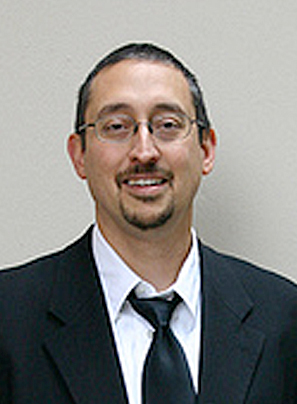
This is the story of a murder and the unfortunate public relations consequences of such. In your entire professional life as a PR person, you will probably never find yourself representing a murderer wanting to clear their name.
However, you will consistently have clients that are criticized online, either directly or through Web sites like VerizonSucks.com. When they ask you, or more likely ask their lawyers to try and suppress that speech, you have to be able to advise your client of the consequences.
THE CLIENTS
Alexander H. Stopp is an attorney representing two men, Wolfgang Werlé and Manfred Lauber, who were convicted of killing a German actor, Walter Sedlmayr. Sedlmayr had been tied up, stabbed in the stomach with a knife and beaten on the head with a hammer. Werlé and Lauber, former business associates of Sedlmayr, were found guilty of his murder and sentenced to life in prison. They were each released in the last two years.
German law provides convicted criminals the right to have news accounts scrubbed of their identity after their debt to society has been paid. The pair successfully used the German legal system to have their names removed from the German-language Wikipedia, which had previously identified them.
THE PROBLEM
However, no such provision exists in U.S. law. Attorney Stopp went ahead and filed with the German courts to order the Wikimedia Foundation, the American entity that runs the English-language Wikipedia.com, to remove his clients’ names from the article about their crime. The attempt backfired wildly, as the case gained coverage in many news outlets, including The New York Times.
I spoke to the Electronic Frontier Foundation, which has a record of defending the American First Amendment online, about efforts to stifle speech. (Disclosure: The Electronic Frontier Foundation is a client of mine at Virilion.) “Efforts to suppress online speech almost always have the opposite effect of drawing far greater publicity” said Jennifer Granick, civil liberties director at the EFF. “That truism is so well-documented that it now has its own name, the Streisand Effect.”
STREISAND STRIKES
The Streisand Effect is named for Barbra Streisand, who sued to get photos of her home in Malibu removed from the Internet, only to draw more attention to them in the process and fail spectacularly. In the 2003 incident, Streisand unsuccessfully sued photographer Kenneth Adelman and Pictopia.com for $50 million in an attempt to have the aerial photograph of her house removed from the publicly available collection of 12,000 California coastline photographs, citing privacy concerns.
Adelman stated that he was photographing beachfront property to document coastal erosion as part of the California Coastal Records Project. As a result of the case, public knowledge of the picture increased substantially and it became popular on the Internet, with more than 420,000 people visiting the site over the next month.
You might ask, “How much worse did the murderers’ attorney make their reputational crisis?” Measurably, it became quite a bit worse.
In looking at Google searches during the last five years for each of the murderers’ names, there was little activity—until the U.S. Wikimedia brouhaha began this year. The newfound fame comes directly from The New York Times story on Nov. 12, in which Stopp was quoted as saying: “They should be able to go on and be resocialized, and lead a life without being publicly stigmatized for their crime. A criminal has a right to privacy, too, and a right to be left alone.”
This story, of course, caused a huge spike of interest in the pair.
RESOLUTION? NOT LIKELY
The Google attention for their names is lessening, but will that spell the end of it? Not likely. If you search on Google for either of the murderer’s names, you’ll see now there is an enormous number of articles, blogs, tweets and discussions about their crime. I stopped reading after the first three pages, but I suspect their lawyer didn’t. The epic failure of his actions measured against his clients’ desires is probably only now sinking in.
But what about trademark and copyright?
The solution is clearly not to use the legal hammer, unless you know it will actually work. Many attorneys may insist that when it comes to copyright or trademark, you have to act and, if you do, you’ll be successful. But “be careful,” says the EFF’s Granick. “Trademark law will not protect a mark from parody, satire, political or non-commercial commentary. Trying to force the law to do so will be unsuccessful and, by looking like attempts to censor speech, will do more harm than good to the brand.”
PROTECTED SPEECH
The U.S. Chamber of Commerce is currently suing famous pranksters The Yes Men for putting on a fake press conference at the National Press Club in Washington, D.C., as if they were the U.S. Chamber and also putting up a fake press release online.
The ruse, announcing the U.S. Chamber’s “dramatic” shift in its position on climate change, at first fooled several reporters, but then became fishy when an e-mailed press release misspelled the name of the Chamber’s president.
Before the real Chamber could issue a correction, Reuters ran the story, which was subsequently picked up by various news Web sites as was covered by business television stations like CNBC.
Many attorneys, including the Electronic Frontier Foundation who is representing The Yes Men, believe they will prevail because The Yes Men’s prank is considered protected speech as parody. Much online criticism will fall into these buckets, so be careful when proceeding blindly with a lawyer’s advice.
CONTACT:
Shabbir Safdar is founder of Virilion. He can be reached at [email protected].
